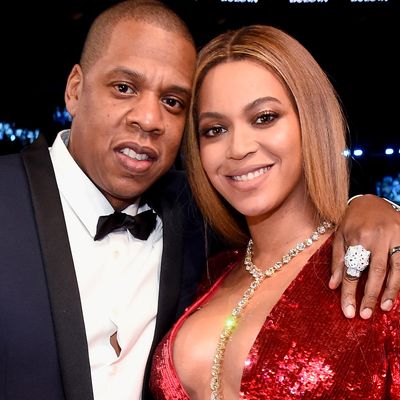
It took roughly three seconds for keen observers of the 2017 Grammys to note the obvious parallels between Adele’s acceptance speech for receiving Album of the Year, in which she, sobbingly, declared that Beyoncé deserved the award and that she, Adele, couldn’t possibly accept the award, and Macklemore’s Instagram post, in the wake of his 2014 win for Best Rap Album over Kendrick Lamar, of a text he sent to Kendrick declaring that Kendrick “should have won” and had been “robbed.” Factually and personally speaking, both public statements were accurate, yet the queasiness they induced, the subtle condescension they evinced, and the shame they displayed smacked of dishonesty nonetheless. After all, it wasn’t as if either artist refused their awards, or had, having come into their possession, given them to their rightful recipients. “She cried, when she took; the more she cried, the more she took,” wrote the Prussian king Frederick the Great of his rival, the pious Austrian empress Maria Theresa, and though the contexts (18th-century absolute monarchs preying on a helpless Poland, 21st-century white pop stars snagging industry awards that should go to their black counterparts) are clearly on a different scale, the hypocrisy common to each remains as relevant as ever. All tears aside, they remain the winners.
The yearly roster of Grammy winners is, if little else, a reminder that power operates not only through brute force and denials, but through culture and flattery as well. Status is a zero-sum game, and every stick applied to one is a carrot to some other. Power is a prison, but it’s also a gift of attentions and honors, goods and titles. In other words, it’s an awards show where each prize unites judges and recipients in complicity. (Unlike last night’s Grammys themselves, though, the Whiteness Awards are ubiquitous and seemingly without end.)
Still, Grammy win or Grammy loss, it was clear — has long been clear — that musically speaking, triumph and status can be conferred by black artists upon themselves. Had Beyoncé somehow won Album of the Year, “Shining,” the Tidal-exclusive single featuring herself, Jay Z, and DJ Khaled released shortly after the Grammys’ end, would have served as accompaniment: The song is all but literally a victory lap, a calm, quick circulation of achievements by the house of Carter-Knowles — “all of this winning,” from money to children to luxury goods to platinum plaques —topped off by a few jaunty Drake-dissing bars. But as things stand, it does perfectly well as a miniature awards show of its own, a proof that, at least in Bey and Jay’s case, black artists set their own standards of winning and own their own records (and, of course, through Tidal, have their own means of distributing music). “Came in ’97, been winning 20 years,” Beyoncé sings, and she isn’t lying at all. The song feels more chaser than shot, but with a history so long and so distinguished, there’s a lot to chase. If there are any monarchs out there now, they’re the ones, having earned the titles fairly, through their own work. If the industry won’t crown them, so what? They can do it better themselves.

